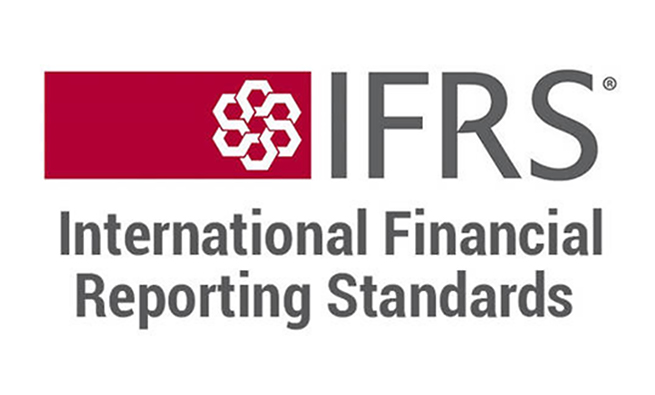Introduction
IFRS refers to International Financial Reporting Standard. The IFRS foundation builds the standard to provide transparency in the accounting system.
It guides the entities on how to prepare their financial statements. Many business owners or professionals are aware of the IFRS.So there is a list of IFRS from IFRS 1 to IFRS 17. Giving the details of every IFRS below:
1. First-time Adoption of International Financial Reporting Standards
IFRS 1 The approach for adopting International Financial Reporting Standards (IFRSs) as the foundation for compiling general purpose financial statements is outlined in the Adoption of International Financial Reporting Standards.
The International Financial Reporting Standards (IFRS) allow for limited exceptions to the general requirement to comply with each IFRS at the end of its first IFRS reporting period.
Its procedure helps the entities in the beginning and preparing of financial statements.
2. Share-Based Payment
Share-based accounting (IFRS 2) Payment requires a business to record share-based payment transactions (such as given shares, share options, or share appreciation rights) in its financial statements, as well as transactions with employees or other parties that are settled in cash, other assets, or equity instruments.
Equity-settled and cash-settled share-based payment transactions and those where the entity or supplier has a choice of cash or equity instruments are all subject to certain restrictions.
Entities can find all the details regarding the share transactions in this standard. They are able to calculate the share premium and other share transactions easily.
3. Business Combinations
When an acquirer gains control of a business, IFRS 3 Business Combinations lays out how to account for it (e.g. an acquisition or merger).
The ‘acquisition technique,’ which requires assets acquired and liabilities assumed to be valued at fair value at the acquisition date, is used to account for company combinations.
4. Insurance Contracts
With a couple of exclusions, IFRS four Insurance Contracts applies to any insurance contracts (including insurance contracts) that the corporation problems and owns, with a couple of exceptions.
The quality provides a temporary exemption from the wants of other IFRSs and the need to think about IAS eight Accounting Policies, Changes in Accounting Estimates, and Errors once choosing accounting policies for insurance contracts, in light-weight of the IASB’s comprehensive project on insurance contracts.
5. Non-current Assets Held for Sale and Discontinued Operations
The International Financial Reporting Standards (IFRS) 5 Non-current Assets Held for Sale and Discontinued Operations explains accounting for non-current assets held for sale (or for distribution to owners).
Assets held for sale are not depreciated but standard measures at the lower carrying amount and fair value, fewer costs to selling, and are reported separately on the balance sheet.
Discontinued activities and non-current asset dispositions necessitate additional disclosures.
6. Exploration for and Evaluation of Mineral Resources
IFRS 6 Exploration for and Evaluation of Mineral Resources allows organizations to implement the standard for the first time to continue applying accounting policies for better exploration.
It also evaluates assets that were in place before adopting the IFRSs. It also modifies exploration and evaluation asset impairment testing by introducing different impairment indicators and allows the carrying amount to be examined at an aggregate level (not greater than a segment)
7. Financial Instruments: Disclosures
Financial Instruments: Disclosures, IFRS 7, demands qualitative and quantitative disclosure of information on the relevance of financial instruments to a business, as well as the nature and amount of risks originating from such financial instruments. Transferred financial assets and a variety of other things necessitate specific declarations.
8. Operating Segments
Under IFRS 8 Operating Segments, some types of organizations (mostly those with publicly traded shares) must report information about their operating segments, products and services, geographic areas in which they operate, and major customers.
The identification of operating segments and the measurement of reported segment information is based on internal management reports.
9. Financial Instruments
The IASB replaced IAS 39 Financial Instruments: Recognition and Measurement with IFRS 9 Financial Instruments, published on July 24, 2014.
Recognition and measurement, impairment, derecognition, and general hedge accounting are all covered by the Standard. The IASB’s endeavor to replace IAS 39 was completed in parts, with each step adding to the standard.
10. Consolidated Financial Statements
It defines the standards for consolidated financial statement production and presentation, requiring organisations to consolidate entities they control.
Control necessitates exposure to or rights to variable returns and the ability to influence those returns by wielding power over an investee.
11. Joint Arrangements
The accounting by entities that jointly control an arrangement is outlined in IFRS 11 Joint Arrangements. Joint control refers to a contractually agreed-upon sharing of control.
Joint control arrangements are either defined as a joint venture (indicating a share of net assets and equity accounting) or a joint operation (representing rights to assets and obligations for liabilities, accounted for accordingly).
12. Disclosure of Interests in Other Companies
It is a consolidated disclosure standard that requires a variety of disclosures concerning a company’s interests in subsidiaries, joint ventures, associates, and other unconsolidated structured entities.’ The disclosures are presented as goals with specific instructions on how to achieve them.
13. Fair Value Measurement
It relates to IFRSs that require or authorize fair value measurements or disclosures, and it establishes a single IFRS framework for measuring fair value and requiring disclosures about it.
The Standard uses a ‘fair value hierarchy to establish fair value based on an ‘exit price’ concept, resulting in a market-based, rather than entity-specific, evaluation.
The International Financial Reporting Standards (IFRS) 13 was first published in May 2011 and applied to yearly periods beginning or after January 1, 2013.
14. Regulatory Deferral Accounts
IFRS 14 Regulatory Deferral Accounts allows a first-time adopter of International Financial Reporting Standards to account for regulatory deferral account balances by its previous GAAP, both on initial adoption of IFRS and in subsequent financial statements, with some little changes.
Balances and movements in regulatory deferral accounts are reported separately in the statement of financial position and the statement of profit or loss and other comprehensive income, and certain disclosures are needed.
15. Revenue From Contract
IFRS 15 prescribes how and when an IFRS reporter must recognize revenue and require such organizations to give more useful and relevant disclosures to financial statement readers.
The standard lays out a five-step approach based on concepts that can be used for any client contract.
The International Financial Reporting Standards (IFRS) 15 was published in May 2014 and applies to annual reporting periods beginning or after January 1, 2018. Clarifying changes were published on April 12, 2016, with the same effective date as the standard.
16. Lease Accounting
International Financial Reporting Standards (IFRS) 16 describes how an IFRS reporter will identify, evaluate, present, and disclose lease agreements.
Unless the lease term is 12 months or less or the underlying asset has a lower value, the standard provides a single employer’s accounting model, requiring tenants to recognize all lease agreements’ assets and liabilities.
Employers continue to classify lease agreements as operational or financial, and the method of counting tenants on IFRS 16 has not changed much from its predecessor, IAS 17.
The International Financial Reporting Standards (IFRS) 16 was published in January 2016 and applies to annual reporting periods beginning or after January 1, 2019.
17. Insurance Contract
Within the scope of the standard, IFRS 17 provides the criteria for the recognition, measurement, presentation, and disclosure of insurance contracts.
The goal of IFRS 17 is to guarantee that an entity delivers relevant information that accurately reflects the contracts it has entered into. Users of financial statements can use this information to examine the impact of insurance contracts on the entity’s financial position, financial performance, and cash flows.
The International Financial Reporting Standards (IFRS 17) were published in May 2017 and apply to annual reporting periods beginning or after January 1, 2023.
Indian Accounting Standard
As per IASB, there are many accounting standards. Entities are required to follow these sets in India.AS 1 states the overall requirements of presentations of financial statements.
AS 2 calculates the value of inventories with the different methods. As per the list of IFRS and IAS standards, IAS 7 reflects the cash flow statements. It describes how to operate cash in different activities.
Similarly, there are different IAS framed by the institution, which are prepared as per the guidelines of IFRS.Ind AS are followed in India. So it is very necessary to know the standards given by the International board.
Conclusion
IFRS is a broader concept. The framework will guide the entity to prepare the financial statements with a stronghold in accounts.IFRS Training certification plays a huge role in enhancing CV. Many entities are looking for candidates who know IFRS as IFRS guides the standards globally.
Now even students are advised to know the difference between IND-AS and IFRS. Finance is a broader concept which contains more accounting standards and accounting terms. Students can learn the concept from top institutes.
They provide the best course with mentors from top backgrounds. Even internship opportunities are available to know the practical ground.
Hope this blog gave a brief detail about IFRS.
Recommended Reads :
GUIDE TO THE OBJECTIVES OF IFRS
IFRS COURSES: DURATION, CERTIFICATIONS, FEE, AFTER 12TH, JOB PROSPECTS, SALARY2022









Thank you so much for uploading this blog post. This is a lot of information to be learned within a few minutes. It really explains a lot about the IFRS and explores all the major topics and answers all the doubts I had about this topic.
I have been looking for a proper article to learn about the basics of this topic and I tried several options as well but none of them explained the topic better than this article.
The facts provided here are extremely helpful. I was able to learn a lot on the topic of the International financial reporting standards and it provided a whole new information on the given topic. Thank you for this share.
I really appreciate the writing team for posting this article. The information on this article is helping me in understanding the topic for Objective of IFRS better. Kudos to the writing team for making this article happen.
I have been looking for a proper article to learn about the basics of this topic and I tried several options as well but none of them explained the topic better than this article.
Very useful write-up. I got almost all the details I needed to know through this single article itself. Appreciate it.
I really appreciate the writing team for posting this article. provided a whole new information on the given topic. Thank you for this share.
Hello, my name is Sudhir, and that was a terrific learning opportunity for me regarding these worldwide financial reporting requirements. This is a wonderful subject. They give us useful study materials on this blog. Sincerely, this is the wisest course of action for your future.
The writing staff deserves a lot of credit for publishing this piece. The material in this article is assisting me in better comprehending the subject of the IFRS Objective. The writing team deserves praise for producing this content. Thank you for supporting me.